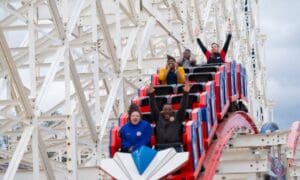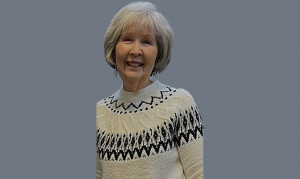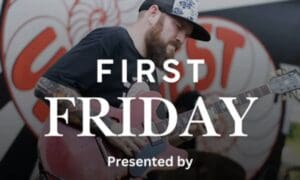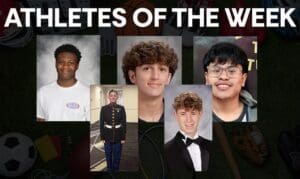The unmistakable thunder from the rotors of a Huey helicopter provided an authentic backdrop to the Peachtree City Veterans Day observance Nov. 9 hosted by the Dixie Wing of the Commemorative Air Force.
The Huey was the workhorse of American troops fighting in the Vietnam War, and the ceremony was a special nod to the 40th anniversary of the end of that war, which claimed more than 58,000 American lives.
Adding to the authenticity from the Huey, guest speaker Maj. Gen Robert R. Patterson, an Air Force retiree, had the veterans in the audience stand so he could administer the oath of enlistment and the oath for commissioned officers. In some respects, this simple act sent the wheels of time spinning backward to the first occasion those young men swore those oaths to defend the Constitution and obey the orders of the President of the United States.
Patterson, whose military roots go back to his father’s service in World War I, said his dad was the smartest man he’d ever met. Patterson’s oldest brother served in World War II following the attack on Pearl Harbor as well. And his second brother served in Korea and Vietnam.
Being exposed to veterans from so many different wars, Patterson said so many war veterans from those eras don’t talk much about their activity on the battlefield.
“On the contrary, Vietnam veterans, they want people to know,” Patterson said. Part of that Patterson chalked up to the Vietnam vets wanting to make sure the sacrifices of the more than 58,000 who died were remembered. He also noted that Vietnam veterans got a less than warm welcome upon their homecoming too, but that has since been ameliorated by the respect troops have received from Americans since then in the Gulf War and the Iraq and Afghanistan wars.
Yet still, deaths from the ongoing Afghanistan war don’t often make the TV news anymore, Patterson noted,
“So are we slipping back, and will never learn?” Patterson said.
Patterson also said military budget cuts are also hurting the nation in terms of their impact on troops and particularly on combat air trainees.
“When you cut your flying hours by 26 percent, and put these aviators on the ground, maintenance people, you’re going to pay for it one day,” Patterson said.
Prior to Patterson’s remarks, former Vietnam helicopter pilot Army Lt. Col. (ret.) Clift Stern shared stories from his memories of the war and what it meant to reconnect with members of his unit some 30-plus years later.
Stern served in the 174th assault helicopter company as a platoon leader. Upon arrival after meeting the company commander and getting his “check ride” he headed to his quarters to unpack but that didn’t last long.
“This guy comes running in and says hey, we’ve got an emergency extraction of a Special Forces team under fire, and we need a pilot, and you’re it,” Stern said.
Stern’s unit flew combat assaults, resupply missions, illumination at night, emergency extractions and medivacs “only because there were more people to be medivaced than we had medivac aircraft to pick them up, and we were already there so most people did what they had to do.”
Stern recounted how one time in bad weather he was approaching the mountains and had to scramble on the radio for help, and as it turned out a Navy man on the other end helped guide him in the right direction to make it home safely.
“It was one of those things, one of those miracles I guess that happened,” Stern said.
Stern spoke of participating in a single invasion in Vietnam with no U.S. combat forces on the ground. During that event, some 258 U.S. troops were killed and 1,149 were wounded along with 38 men who went missing in action, almost all of which were air crew members.
For many who served, there are some days that stick with you, that are never forgotten and are remembered constantly, Stern said. One such day for him was Feb. 8, 1971, which sticks in his mind “every second, every day.”
He remembered pilot Bob Gentry, who was 22 at the time and Stern’s wingman. The mission was an attack on Laos and Stern remembered prior to his chopper landing safely, the first three who had attempted were shot down.
“I landed and I came out and could see an NVA setting up a machine gun position. And to this day I wonder is there something I could’ve done differently,” Stern said.
Bob was hit on the next round, which tore through his aircraft, Stern said.
“And he was killed that day. A tremendous person … there were so many good people over there that were so young, and they never made it.”











Leave a Comment
You must be logged in to post a comment.